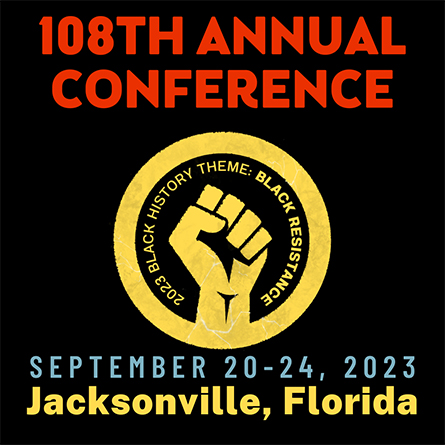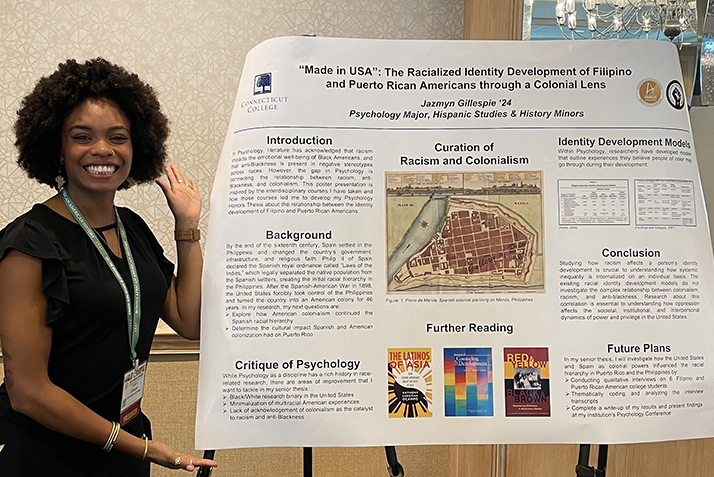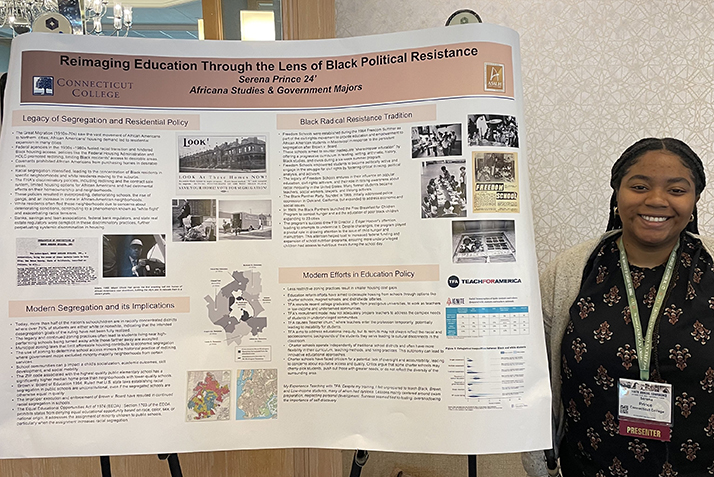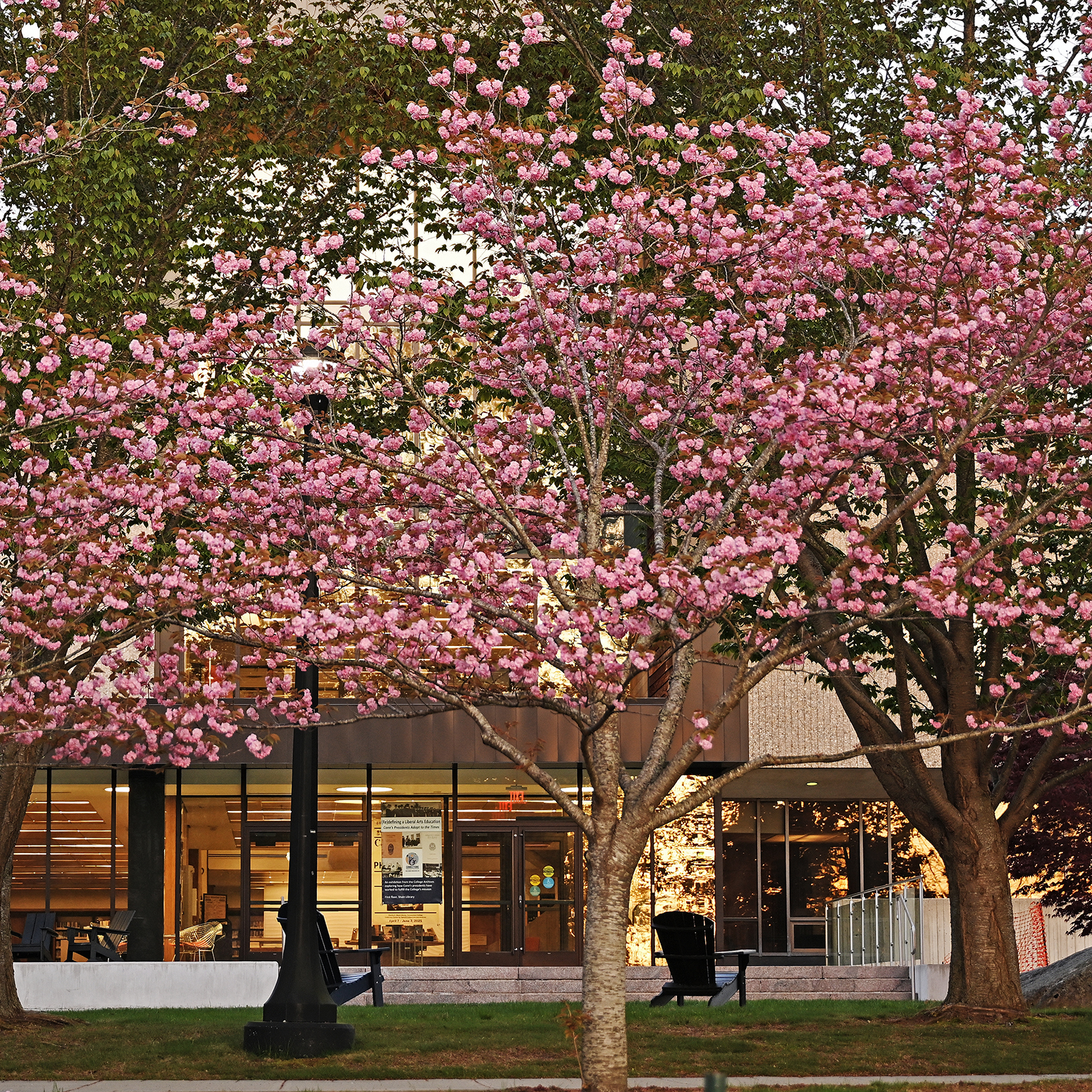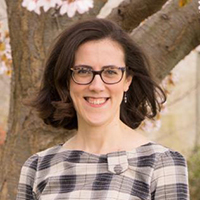
Students and faculty present at ASALH’s ‘Black Resistance’ conference in Florida
Professor of English and Poet-in-Residence Kate Rushin, Visiting Assistant Professor of History Taylor Desloge and Professor of History and Global Islamic Studies Program Director Eileen Kane brought eight Conn students to the 108th annual meeting of the Association for the Study of African American Life and History (ASALH) in Jacksonville, Florida, in late September.
ASALH was founded in 1915 by Dr. Carter G. Woodson, the father of modern Black History Month. It is the premier organization dedicated to promoting, preserving, interpreting and disseminating information about Black culture and history. The theme of this year’s conference was Black Resistance, which, Desloge commented, “could not be more appropriate as states and school boards across the country censor Black history, ban books and threaten teachers who offer full and honest narratives of our nation’s past.”
This was Desloge’s third time going to ASALH, but his first time bringing students. “Going to an ASALH conference means meeting and listening to not just professional historians, but people ‘doing’ history in all kinds of ways,” he said. “You might see high school students, teachers, social workers, clergy, activists, genealogists, historical preservationists, and even musicians and artists. I knew it would be a supportive—and fun!—environment for students to share their work and meet people who would be interested in what they were doing.”
Panels included topics ranging from the Student Nonviolent Coordinating Committee (SNCC) archive to oral histories of Black teachers to the work people are doing to preserve Black history in their own communities.
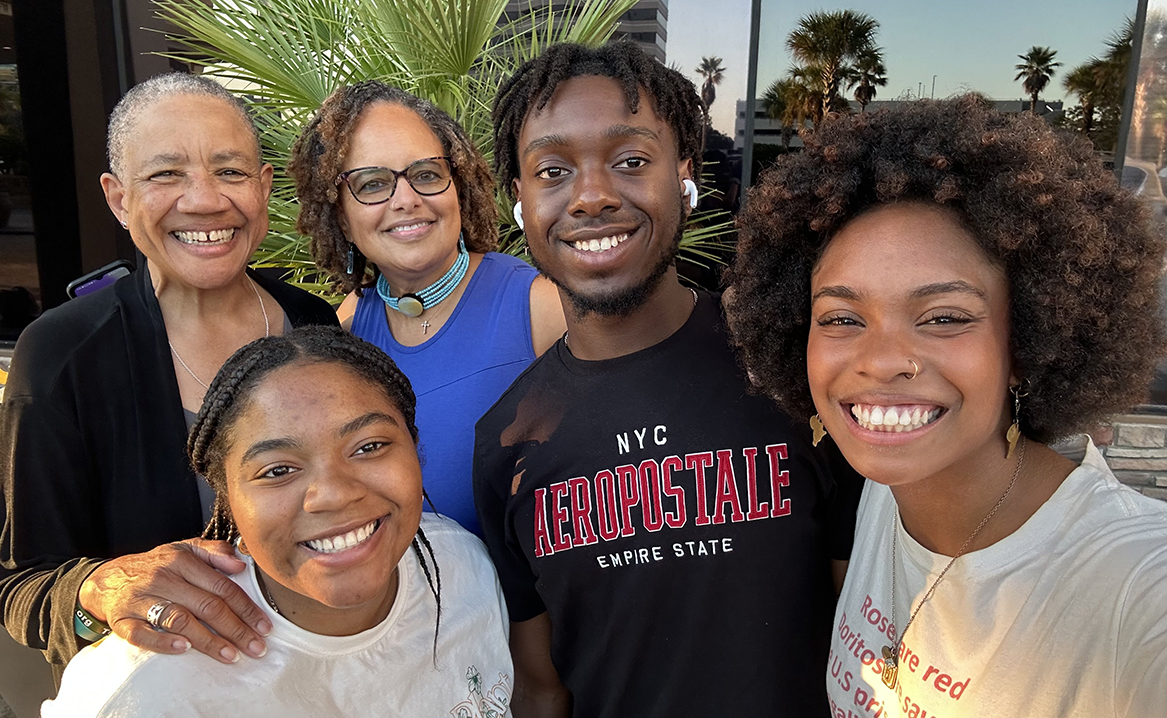
Attendees also learned about Jacksonville’s rich history in the long Freedom Struggle; Jacksonville was the home of James Weldon Johnson, the Harlem Renaissance poet and novelist and one of the first national secretaries of the NAACP. The ASALH conference was blocks away from the Florida Baptist Academy, where Johnson composed “Lift Every Voice and Sing,” known as the Black national anthem, for a celebration of Lincoln’s birthday as a poem in 1900. The city was also one of the childhood homes of labor organizer and Civil Rights activist A. Phillip Randolph, who organized the first March on Washington Movement. Students took a day trip to the Kingsley Plantation, a late-18th-century indigo and cotton plantation located about 40 minutes outside of Jacksonville.
Desloge presented at the conference, as did five of the eight students and graduate May Kotsen ’23. Desloge organized a panel on a collaborative website and ArcGIS mapping project he created with his students, Segregation and Community in New London. The project is an exploration of Black community life in the city of New London as told through the story of Hempstead Street, the site of some of the oldest continuously African American-owned properties in New England.
The project was originally inspired by a ConnSSHARP collaboration with Madison Taylor ’22, who helped Desloge develop a series of lesson plans on New London for his class “HIS 435: Segregation in America.” Taylor eventually wrote an award-winning thesis on Black mutual aid in New London in the early 20th century. The project expanded to include Eli Prybyla ’24 and Sydney Marenburg ’24, who received another ConnSSHARP grant to help finish the research Desloge started with Taylor.
At the ASALH conference, Prybyla and Marenburg presented their original research on New London’s forgotten 1919 race riot, the lives of the domestic workers who lived and worked on Hempstead Street, and the wide social distance between the independent, middle and upper class “New Women” of Connecticut College and the Black and immigrant “working girls” who lived on Hempstead Street at the turn of the 20th century.
Prybyla said, “The opportunity to attend the 108th ASALH Conference as a panelist is a defining moment of my study of history at Connecticut College. As an undergraduate student, sharing my research with a community of experts was inspiring and made me excited about future research and conferences.”
Jazmyn Gillespie ’24 and Serena Prince ’24 conducted poster presentations on their research in progress. For her Africana Studies capstone, Prince is exploring the historical intersections between racial and class segregation and educational inequality. Her presentation, “Reimaging Education Through the Lens of Black Political Resistance,” detailed the long history of policies that have defunded and disadvantaged Black students in the U.S. alongside examples of alternatives from the long Black Freedom Struggle, from the SNCC’s Freedom Schools to the Black Panther Party’s educational programs.
Gillespie presented on the impact of American colonialism on the identity development of young Puerto Rican and Filipino Americans. Kotsen was unable to make the trip to Jacksonville but presented a selection from their senior thesis at a virtual poster session.
Shantaal Lovera ’25, Zale Peart ’25, Felipe De Los Santos ’24 and Diamoni Davis ’27 offered support to the presenters, attended panels and met with notable people, including Motown legend G.C. Cameron, anthropologist and educator Johnnetta Cole, and Harvard professor Jarvis Givens, as well as former Conn professor David Canton, who is now the chair of the African American Studies Department at the University of Florida, and Conn Professor Emeritus Michelle Dunlap.
